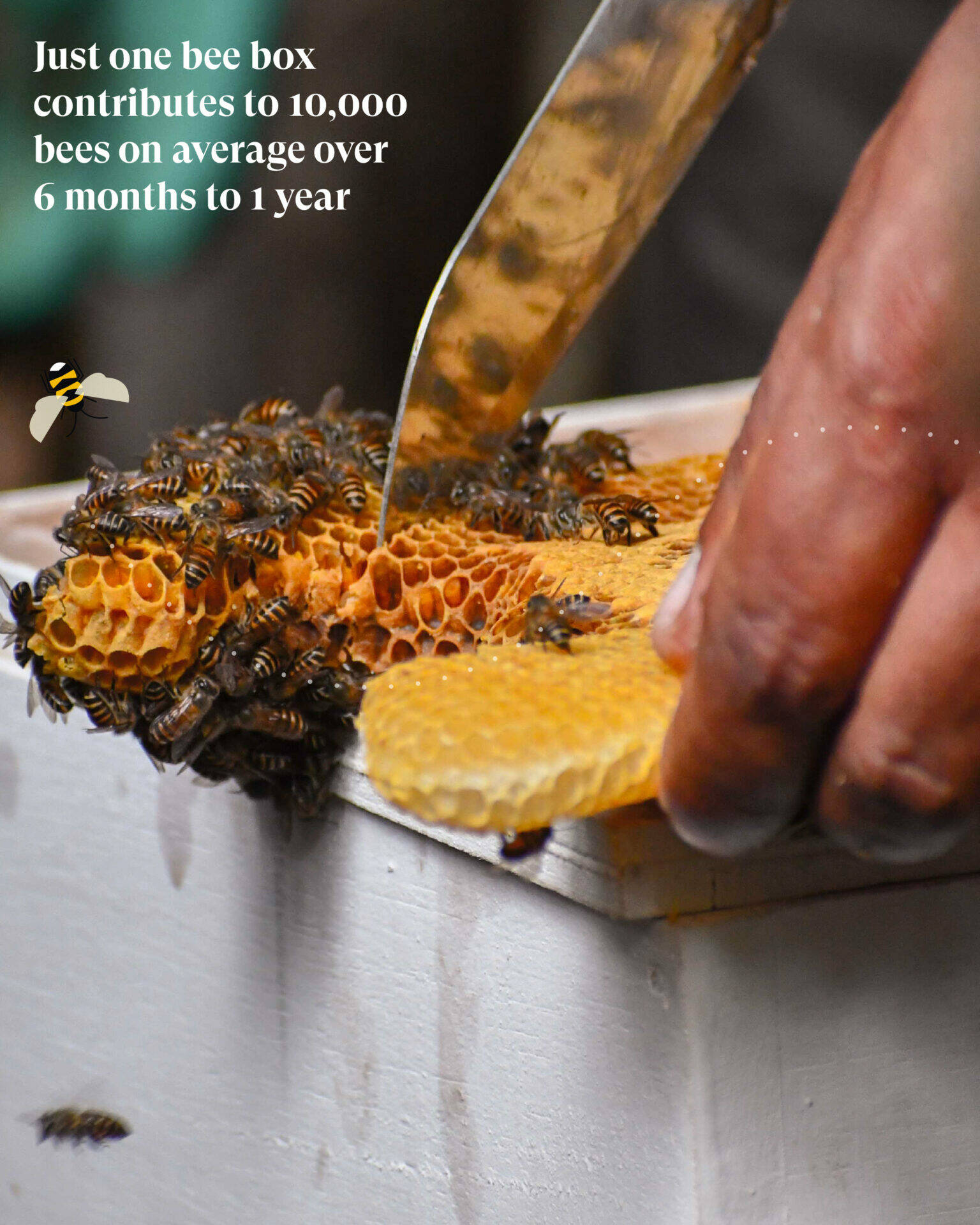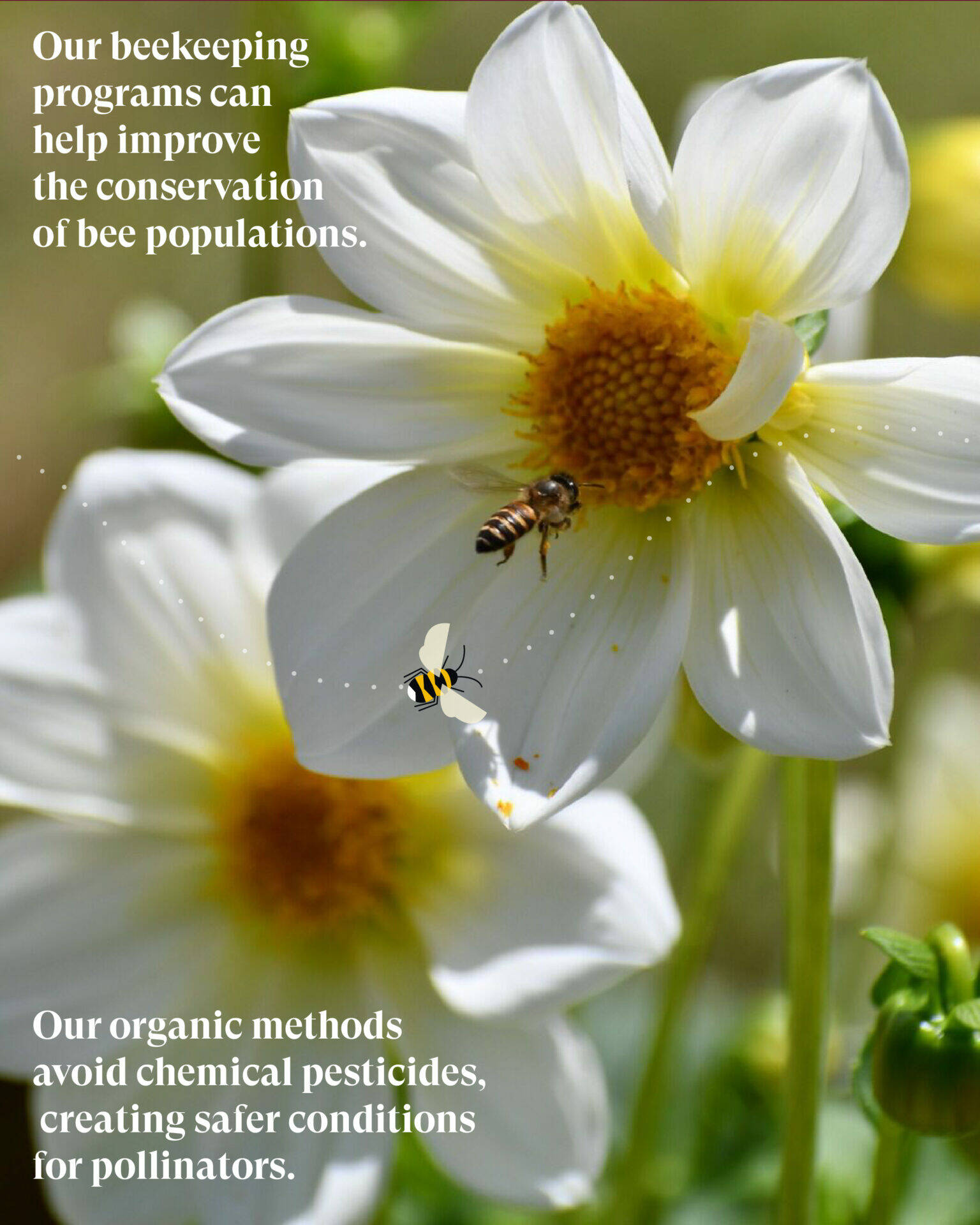As we mark World Conservation Day this July 28 it’s a good time to pause and celebrate the positive choices that protect our planet.
At English Tea Shop we farm 100% organically across a collective 3,797 hectares of land, creating safer spaces for wildlife and pollinators.
Besides our chemical-free ethos, we have a thriving beekeeping programme to support one of nature’s most vital workers. After all, without bees, there would be no tea!
Precious pollinators
Pollination, the transfer of pollen grains from one flower to another, is how most flowering plants reproduce.
The pollen comes from the male part of the flower called the stamen and becomes attached to the bristly bodies of insects or animals which visit the flower. As they move on, the pollen is transferred to the sticky stigma – the female part – of another flower, which is connected to the plant’s ovary.
Around 75% of the world’s crop plants need pollination, so ensuring this process happens is vital for food security.
Though butterflies, moths, beetles and flies are among insect pollinators, bees are the most important. However, their populations are in decline due to habitat loss, disease and the weather effects of climate change.

How we help bees thrive
Our organic methods avoid chemical pesticides, creating safer conditions for pollinators including bees.
Since 2021, we’ve gone further to help our fuzzy friends by giving beekeeping workshops to 75 farmers in Sri Lanka so they can learn about looking after the creatures.
Each participating farmer has also been given a beehive to help populate their fields. Just one of these boxes contributes to 10,000 bees on average over six months to a year.
Not only does this mean more bees in the environment but also, thanks to better pollination, increased harvests and crop yields for the farmers. Beekeeping also gives our farmers an additional income from products such as honey.
Boosting bees not only helps the tea crops on our farmers’ land, but as the insects roam they also help surrounding agriculture and, ultimately, food security.
Healthy ecosystems
Helping conserve healthy bee colonies is a part of our wider approach to long-term biodiversity through organic farming.
We give training and support to farmers in Sri Lanka to encourage their switch to organic methods which will nurture the soil for many generations to come.
It’s part of our Creating Shared Value model which also involves working directly with farmers and paying them fairly for their efforts. Because we believe being environmentally secure and economically prosperous go hand in hand.
We were humbled to have our work recognised this year with a King’s Award for Enterprise in Sustainable Development, having received a Queen’s Award in the same field in 2020.
Find our more about our ethos here.
